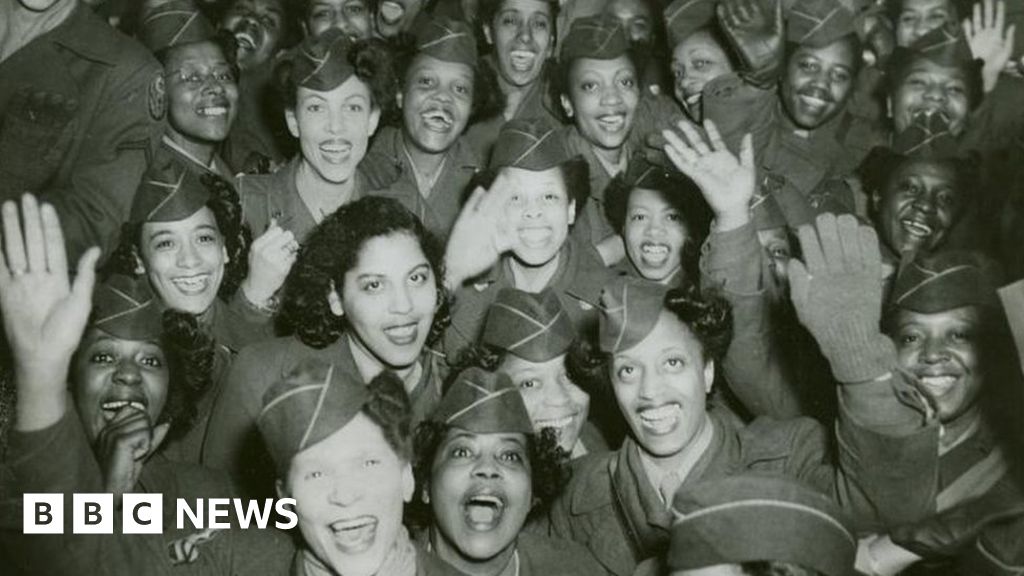
Six Triple Eight: The battalion of black women erased from history
The members of the 6888th battalion are beginning to get recognition almost 80 years on.
12 hours ago
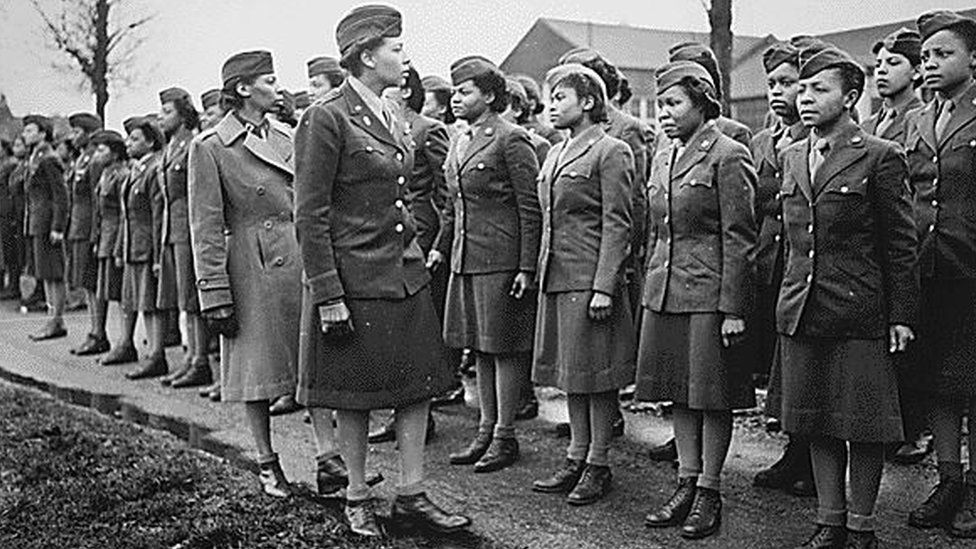
IMAGE SOURCE,US NATIONAL ARCHIVES
Major Charity Adams inspecting the first arrivals to the 6888th Central Postal Directory Battalion
By Oprah Flash & Amy Johnston
BBC News, West Midlands
The story of a World War Two battalion of black women who came to England to solve a postal crisis has been hidden for decades, but they are starting to get the recognition they deserve. The BBC spoke to some of their relatives about the unit known as Six Triple Eight.
In 1945, as war continued to grip many parts of the globe, 855 women answered the US Army's call to revive troop morale and clear a two-year postal backlog in England.
They set sail from America to the UK, finally settling in Birmingham to join the 6888th Central Postal Directory Battalion.
Then aged 26, trailblazer Major Charity Adams became the first black woman to command an overseas battalion in the US Army and led the women to solve a huge problem.
They were given six months, but through 24-hour shifts they sorted through 17 million letters and packages in half the time.
In doing so, they helped boost the spirits of personnel on the front line who had lost communication with their loved ones back home.
"I seldom heard anything about black women serving in World War Two, it's like they were deleted from history," said Col Edna Cummings, a retired US Army officer who served for 25 years.
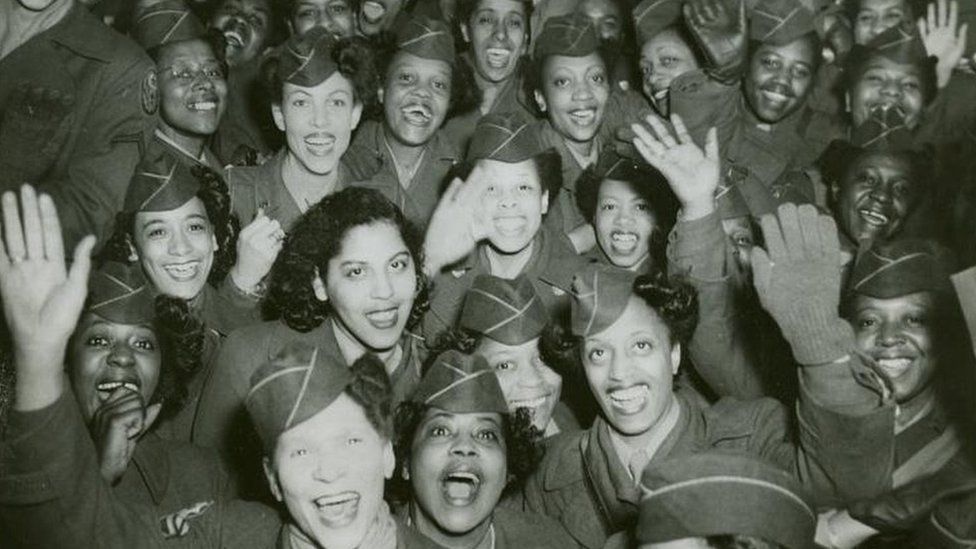
The women had a motto: "No mail, low morale"
Based at King Edward's School, in Edgbaston, the women - who went on to Rouen and Paris in France - faced many challenges including using outdated equipment, cultural differences and gender discrimination.
They worked in cramped, unheated and dimly-lit buildings with packages stacked to the ceilings. Many reported being surrounded by mice and rats which had sought out spoiled food in some of the parcels.
Despite this, they defied all odds and earned themselves a reputation for their efficiency and dedication by working under their motto: No mail, low morale.
When they returned home in 1946, the unit, which also included some Hispanic women, were not given ceremonies, parades or any public recognition of their accomplishments.
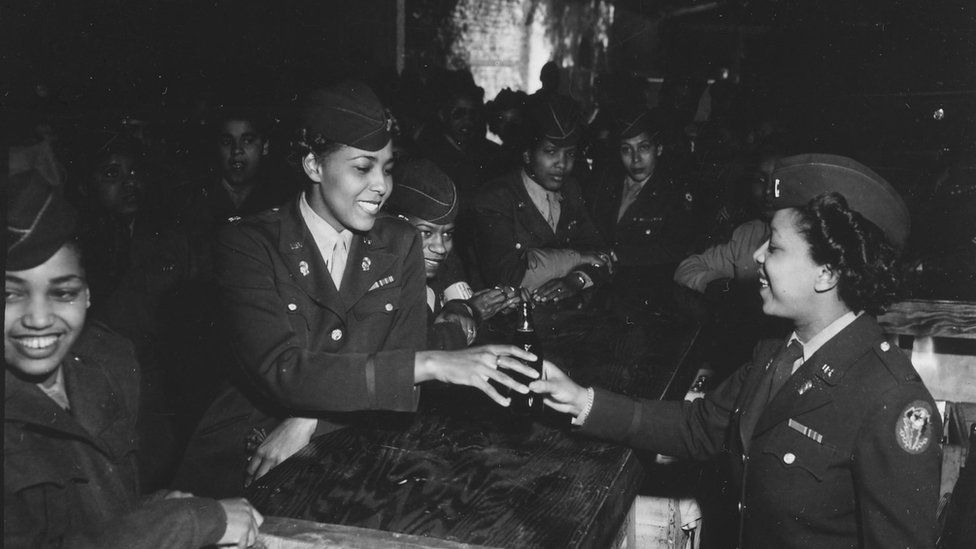
The battalion of 855 women were made up of officers and volunteers
However, nearly 80 years on, they are finally getting recognition.
Their story is being brought to life on the silver screen in a film created by Tyler Perry which will stream on Netflix.
Starring Oprah Winfrey and Kerry Washington, the idea for the film was born when Perry came across a WWII History magazine article about the battalion by historian Kevin M. Hymel in 2019.
Alongside the fervent efforts of Ms Cummings to highlight the phenomenal achievements of the women, it proved to be the catalyst for global recognition.
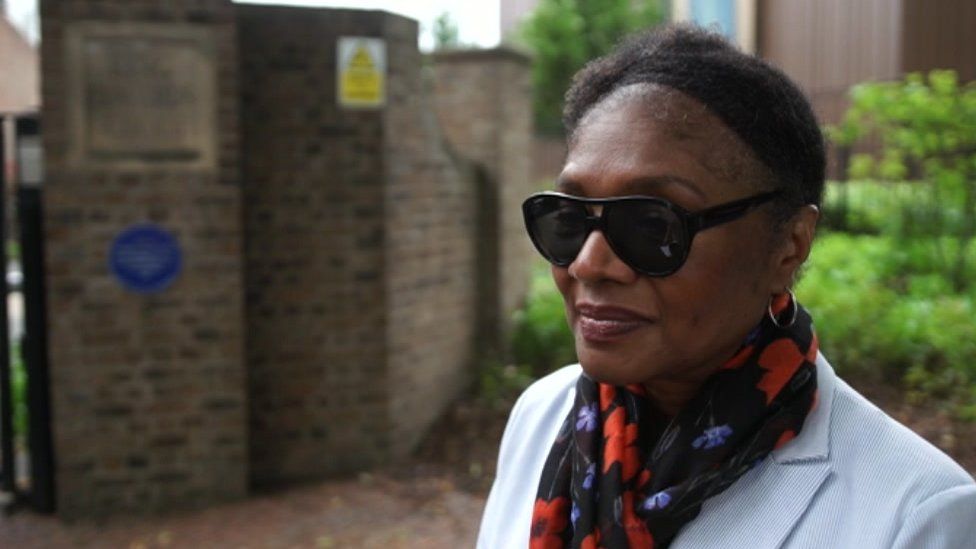
Col Edna Cummings was instrumental in fighting for a Congressional Gold Medal for the women
A monument dedicated to the women was installed in Kansas in 2018. Three years later, President Joe Biden signed the Six Triple Eight Congressional Gold Medal Act of 2021, awarding the women America's highest civilian honour in March last year.
A musical based on the battalion is also planned for Broadway.
But who are the women behind the accolades? The modest pioneers are much-loved mothers, grandmothers and pillars of their community.
Their descendants recently travelled from the US to the West Midlands to trace the women's steps.
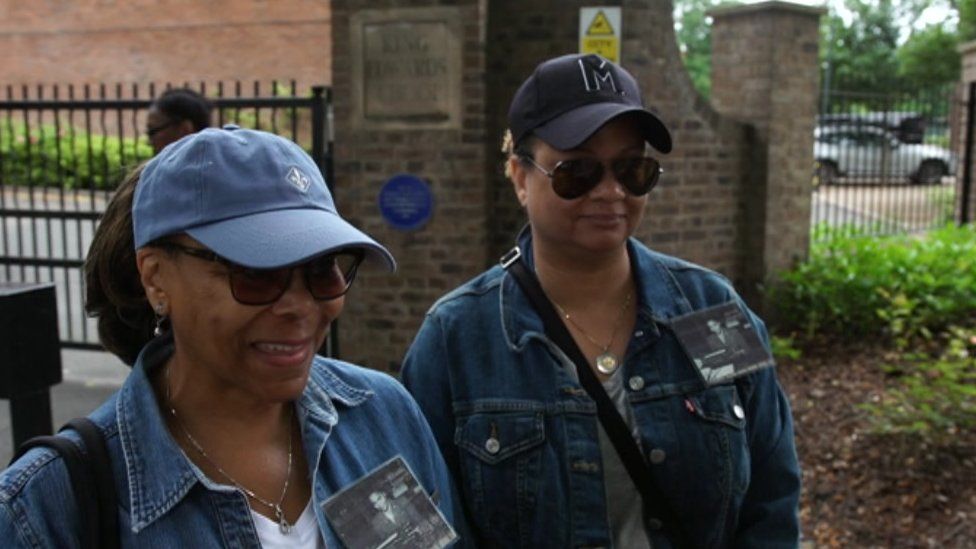
Sandra Frazier Dean and her niece Danielle Sonnier Brown were among relatives who visited Birmingham
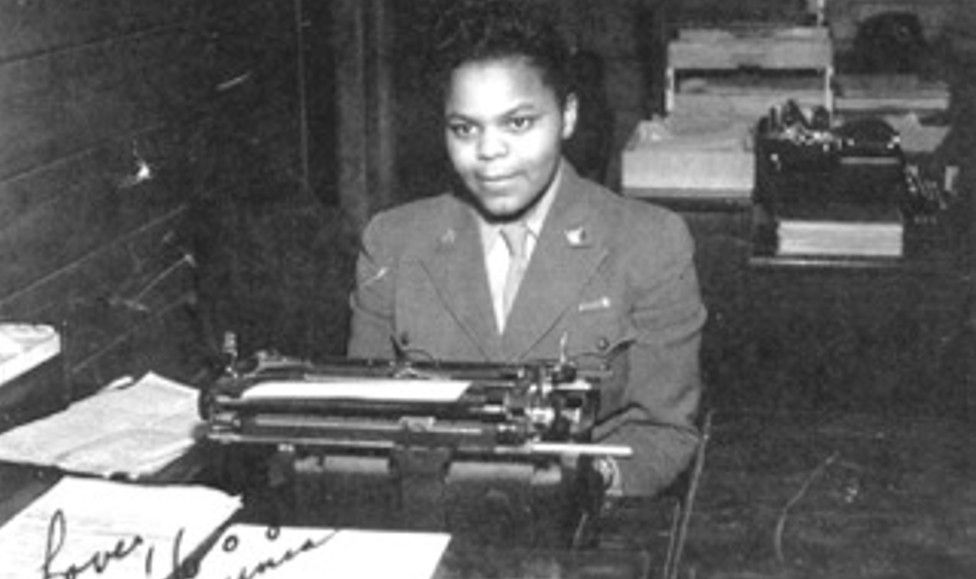
The legacy of Sgt Virginia M Lane was remembered by her daughter and granddaughter during the tour
One of the women who served was Sgt Virginia M Lane.
At the time the women left America, racial tensions were high, with a society divided by segregation; basic human rights of black people were bound by "Jim Crow" laws, which remained in place until the 60s.
The laws were passed in the southern states of the US after slavery was abolished. They denied black people equal rights and they were not allowed to use 'whites only' public facilities such as schools and parks.
"As an African-American woman, she would always speak about how the people treated her," said Danielle Sonnier Brown, 47, recalling a conversation with her grandmother.
"Even though there was some racism experienced here in England, she said people here treated her better than she was treated at home [in the US], she would speak at length about that.
"She said she felt herself here."
With a picture of her mother Sgt Lane proudly pinned to her chest, Sandra Frazier Dean, 67, said: "Being in the military brought a sense of regiment to our lives, it was a purpose and she always told us to do our best and travel.
"That was one of the things she liked about it, the opportunity to visit other places."
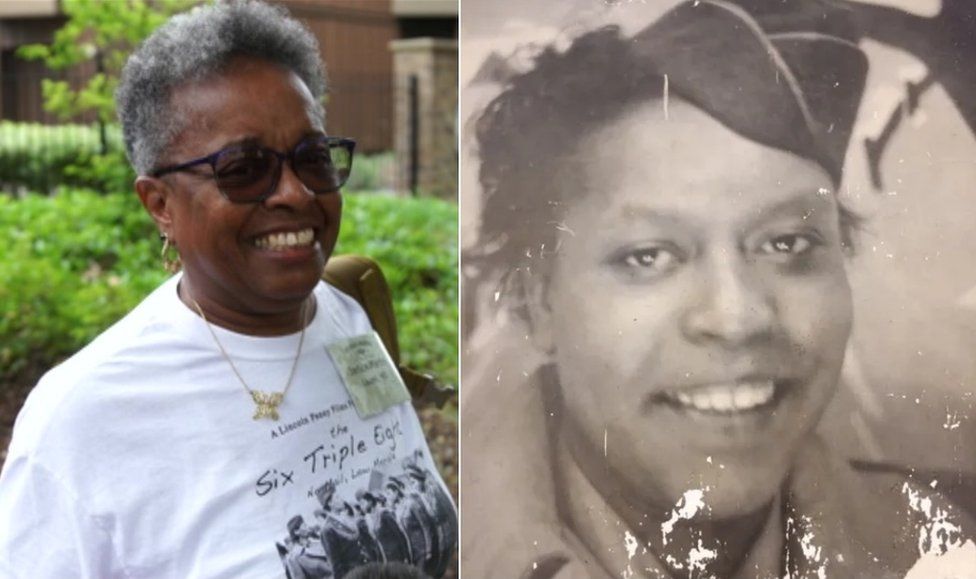
Janice Martin proudly wore a shirt with her mother and the 6888th battalion emblazed across the front
The legacy left by Indiana Hunt-Martin also lives on in her children.
Born in 1922, she worked as a cleaner before volunteering in the Women's Army Corps (WAC) and joining the battalion.
"It's really sad that these women... broke a barrier just by being women in the military, and also by being African American, but we were never told anything," her daughter Janice Martin said.
"She didn't talk about her experiences until the last two years of her life.
"All we were told was about the Suffragette movement for women's rights but we never knew the roles that our parents played in the women's movement."
After completing her duty to the war efforts, Mrs Hunt-Martin returned to her community and became a life-long member of Black Pioneers of Niagara Falls and the Women's American Legion Lodge.
She died at the age of 98.
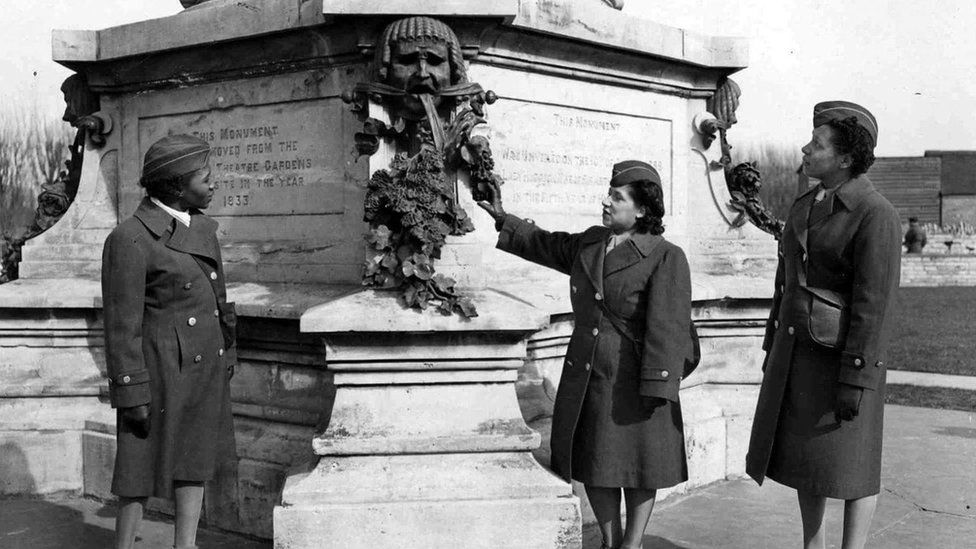
Members of the 6888th battalion posed with the statue of Shakespeare in Stratford-upon-Avon
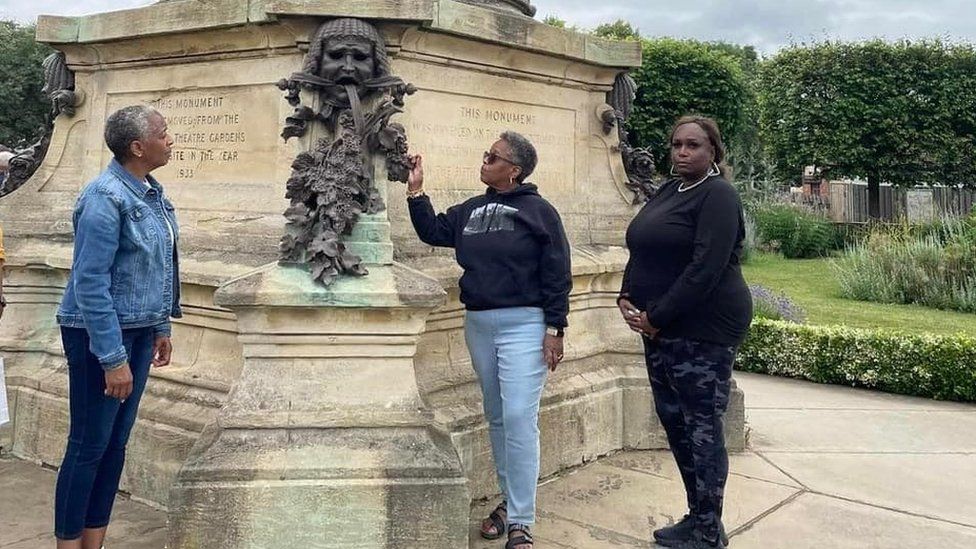
During a tour to trace their ancestors' footsteps, family members recreated the iconic photo
Downplaying their legacy appears to be a common theme among the battalion members, as Roger Matthews, 65, also doesn't remember his mother Vashti Murphy discussing her time during the war.
Although she did write about it.
In extracts printed in the Afro American Newspaper at the time, she retold her experience of sleeping in "crowded" living spaces and the desperate longing for a decent shower.
She wrote: "I am as happy as possible for the first time in four months I can take a shower... with hot water.
"The water is hard, but after bathing in a helmet for so long it is still heavenly."
However, it appears once she returned home, she no longer recounted her war tales.
Mr Matthews said: "She never talked about it, she thought it's just what you did and didn't view it as anything special, it was something that needed to be done and that was it."
Mother's advice
The experience inadvertently encouraged her children to strive for excellence and push through glass ceilings within the military field.
Mr Matthews was deployed to fight during the Vietnam War and he served in the military for 24 years as a second lieutenant.
At the time in 1974, his mother's advice was: "If you've got to go in, you're going in as an officer."
"I can still hear that in the back of my head," he said.
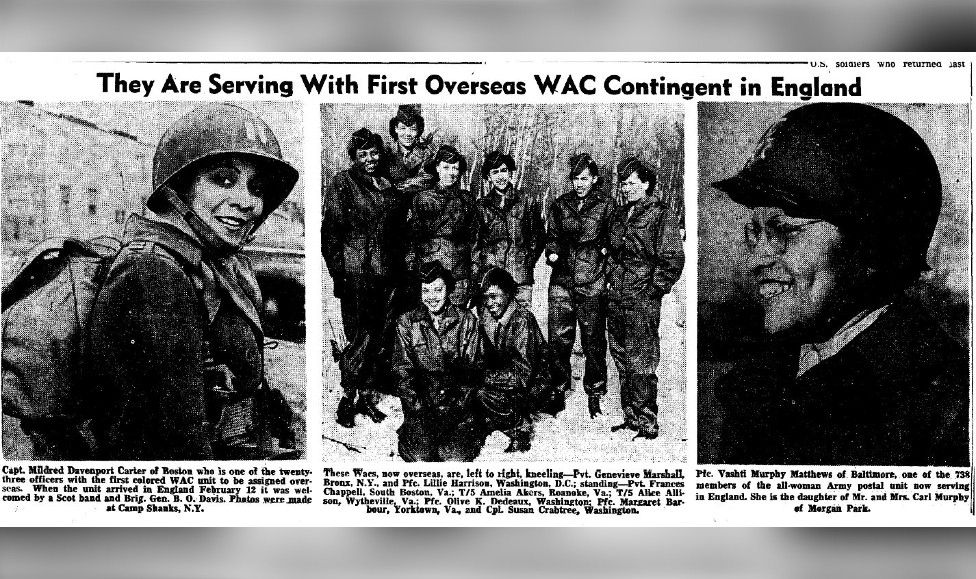
Accounts by Vashti Murphy were published in the Afro American Newspaper which is run by her family
Her grandfather John H Murphy had co-founded the Afro Newspaper, one of America's oldest family owned newspapers which is still running today - 130 years on.
A former photo engraver, she went on to become a researcher and archivist for the family business - all while raising five children.
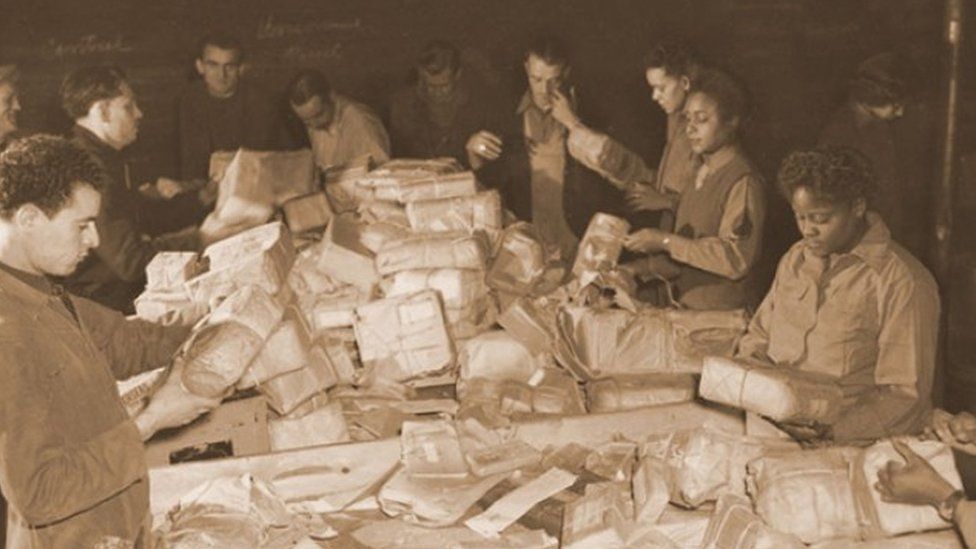
In three months, the women worked a 24-hour shift pattern to clear a two-year postal backlog
Werst Midlands local historian Garry Stewart, 51, of Recognize Black Heritage and Culture, helped to organise the Birmingham leg of the relatives' tour.
He said: "For us here in Birmingham, it's a really important story. We're able to show how black heritage in the city is established as far back as 1945 and way beyond that."
The stories of the 855 women who helped to boost morale not only shaped the lives of their children and grandchildren, but have been monumental for black Britons living in the city.
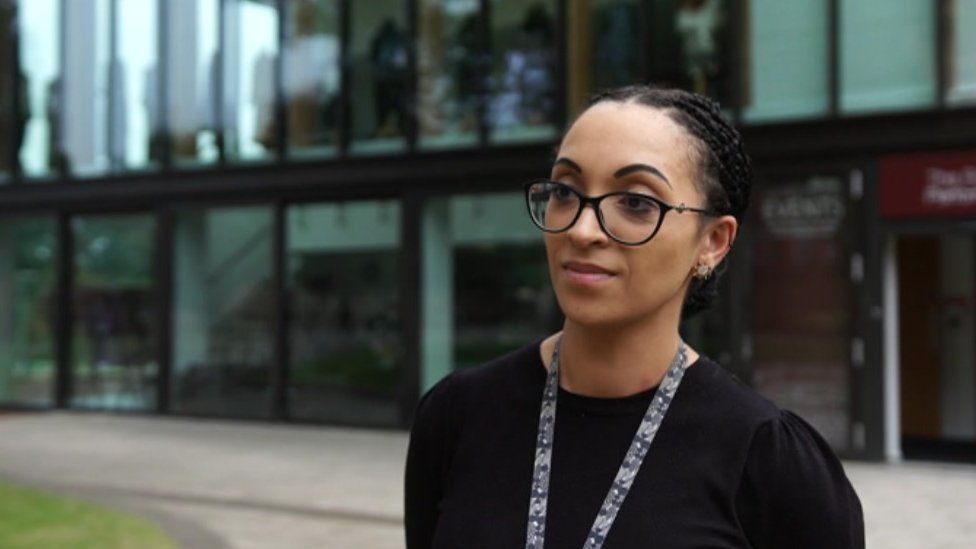
Olivia Brechon-Smith runs the African and Caribbean Society at King Edward's School and says the battalion's history at the school is an inspiration to students
Olivia Brechon-Smith, 33, a maths teacher at King Edward's School (KES), said: "The impact that an all-black battalion of women stationed at KES [had] means so much to me, it's inspiring as a black woman.
"Coming from a family descended from the Windrush generation, it's such a big community in Birmingham but isn't publicised as well as it could [be], and people knowing about the 6888 being here is so prominent in Birmingham's history.
"Students will feel even more empowered to have high aspirations, knowing that not so long ago there was a whole unit here making a difference, changing the world and changing the narrative and they can be part of the future generation in doing so."
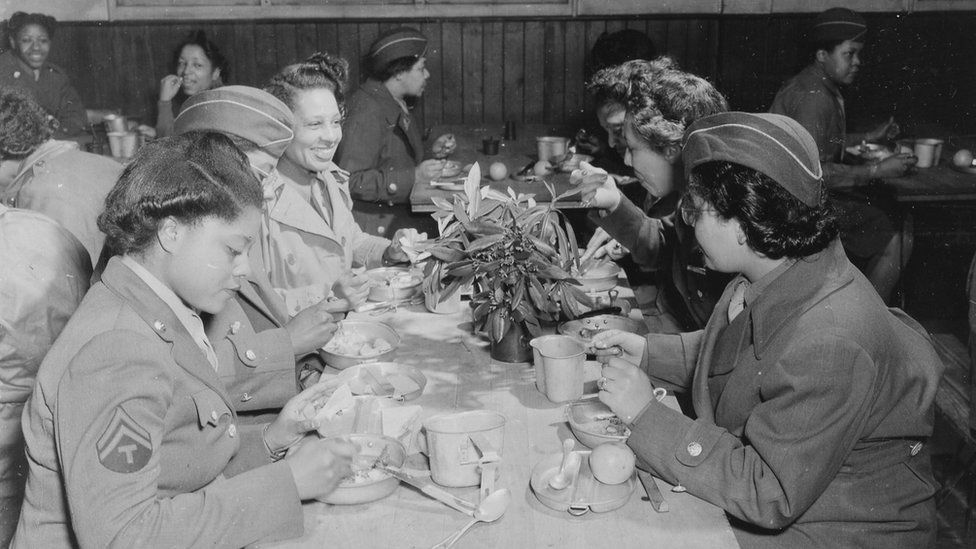
The battalion worked in a 24-hour shift pattern to clear the backlog in half the time they were given to do it